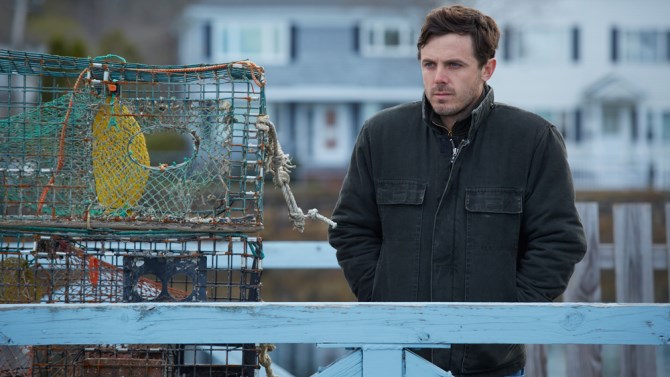Humour where you least expect it, and pain in every frame. That’s Manchester by the Sea. No, not that torture-thrill kind of pain to which moviegoers have become desensitized, but the kind of slow, simmering, relatable pain that strikes at the hearts of parents, lovers and loners everywhere.
The film is written and directed by playwright and filmmaker Kenneth Lonergan, which explains the preciseness of the dialogue and the fact that the film’s location and its title are purely incidental; it’s a picture-perfect slice of New England small-town life, to be sure, but this kind of homemade tragedy could just as easily take place anywhere.
Casey Affleck plays Lee Chandler, a man whose life has stalled. He works as a handyman for a cluster of rundown buildings in Boston, is relationship-phobic and spends his spare time drinking and brawling. His life is engineered so that he interacts with people as seldom as possible; Lee’s days are depressingly repetitive, and deliberately solitary.
Big tearjerker moment number one comes when Lee is called back to his seaside hometown of Manchester after the death of his brother Joe (Kyle Chandler). “The Lee Chandler?” asks a local, the first hint we get of Lee’s notoriety. Hospital paperwork and trips to the morgue follow, and even the most clinical and mundane details seem urgent in Lonergan’s hand. It takes a lot, but eventually Lee breaks down.
Joe’s alcoholic wife Elise (played by Gretchen Mol) split years ago, and Joe’s will announces Lee as sole legal guardian to Patrick (Lucas Hedges), his 16-year-old son. “But I’m just the backup,” says a stunned Lee, who does just about everything to offload the nephew with whom he shares great memories, but no chance of a future. It was Joe who held the family together, and his final request is yet another act designed to save Lee from a life of self-imposed exile.
Lee takes a few weeks off work to organize Joe’s funeral and get Patrick settled somewhere. He needs to offload Joe’s fishing boat, too. Much of the humour is in the interaction between an overwhelmed Lee, and Patrick, the town’s teen lothario, who seems to be dealing with his father’s death a lot better than his uncle is.
Just why there can be no future for Lee in Manchester is revealed in terrible flashback to the one night that changed Lee’s life forever. It’s one sadness poured on top of another as Lee and Patrick navigate the funeral, the reappearance of a supposedly reformed Elise (plus a new evangelical husband played by Lonergan regular Matthew Broderick), and run-ins with Lee’s ex-wife Randi (Michelle Williams). It’s a small town, and Lee’s history follows him everywhere: in his job search, into the bar and among the parents of Patrick’s friends.
Grab-the-hankie moment number three occurs when Randi and Lee finally have a long-overdue conversation in the middle of a Manchester street. Outwardly Randi has moved on, but one look says that she is irretrievably lost. Their conversation is too intimate, and difficult to watch, a credit to both actors’ skill. Williams doesn’t get a lot of screen time but owns every moment she has. Hedges holds his own as the wise-cracking but nonetheless grieving teen who’s tasked with trying to coax some humanity out of Lee before time runs out on them both.
But this is Affleck’s film: he inhabits his role completely, delivering a brilliantly understated portrait of a man determined to die from grief. “I can’t beat it,” he despairs. Lonergan (Margaret, You Can Count on Me) eschews fancy camerawork and close-ups and wisely lets his actors do their thing: the audience feels as though we’ve been following these people around town for a few hours. And subtlety throughout: we don’t need to see the photos in the frames to be any less affected by the way they are regarded, and gently packed away. Â
It seems that everyone in Manchester by the Sea suffers from a broken heart, or a heart that’s just plain broken. Beautifully done. Statues all-round come awards season, all but guaranteed.
Manchester by the Sea opens Friday at Fifth Avenue.



